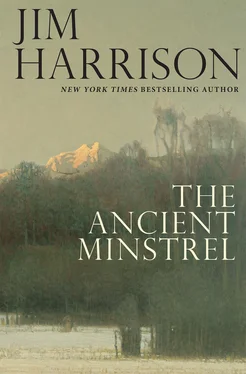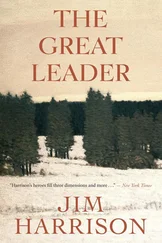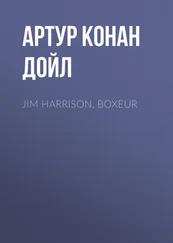Catherine took Hud for a little walk to shake off her dark mood and was amused when he hopelessly chased a jackrabbit that was much faster than he was. He finally slumped to the ground and looked like he was feeling sorry for himself after his failed game of catch, kill, and eat. It seemed that her life was accelerating in a direction she had chosen but at a speed she couldn’t quite emotionally encompass. Her mind felt quivery but tentatively sane. It reminded her of her junior year in college when she thought she was going nuts. Since she passably read Spanish she had agreed for a poetry class to write an essay on Lorca’s Poet in New York which was still fairly new at the time, maybe ten years since its publication shortly after the poet’s murder which had dumbfounded her. The project was unwise as the book drove her batty. She had loved Lorca’s Gypsy Ballads but had in error assumed this was the same kind of book, far indeed from the truth of the matter. What was a girl from Montana to make of a section named “Landscape of a Vomiting Multitude”? She tried to back out of the essay but the professor wouldn’t allow it because he was interested in what she had to say about the surrealism of the book. He was in his late sixties but was obviously sweet on her and said she must write the paper as he was curious about what she thought. In his office she sat in a low easy chair which she figured he had in order to look up the legs of girls, so she showed a lot of leg to tease the wicked old lecher.
What saved her on this project whose horrors had been exacerbated was the essay on duende that Lorca had written, which her professor encouraged her to read alongside. The essay made clear for the first time why she loved the kind of music and poetry she did. The art she loved had cante jondo , a ghostliness that drew out one’s most deep-seated emotions. It didn’t matter if it was Beethoven or Carlos Montoya simply playing the guitar which at one point had made her sob. Stan Getz would later touch her the same way. Perhaps it was strange in retrospect how utterly infatuated she had become with the poet after reading Gypsy Ballads . She had fantasies of making love to him on the bank of a river in Andalucía, then she discovered that he had been born gay and now was dead at the murderous hands of Franco’s men in Granada. She felt foolish for her heartbreak but then there are no limits to the emotional life.
Her pregnancy was difficult. She had interminable bouts of morning sickness and after two months there was a horrifying letter from Winnie in England beginning with the ominous, “Tim’s parents asked me to write this letter.” Tim had committed suicide. What had happened was that Tim had taken a long walk and fallen half in the creek and couldn’t get up out of the mire.
A search party looked for him all night and only found him in the morning. He contracted severe pneumonia and was hospitalized. I visited him and he was proud to have made you pregnant. I helped him get a lawyer so he could provide for you and leave his armed services pension to the child. The pension is small but better than nothing. It helps that we have one from Harold’s perilous service in World War I. He still has difficulties from the mustard gas. Anyway, Tim was getting better but then he got a severe case of flu from the hospital air. He shrank to nothing. He saved up his pills in secret, took them all at once, and committed suicide. It was too much to ask him to stay alive. He was suffering horribly. I’m sorry to have to tell you this. He gave me this little note for you.
Winnie had enclosed the note which read, “I’m so happy that you are pregnant. I am sorry I won’t see the child. Maybe in the afterlife if there is one. I could no longer bear life as it is given me. I love you. Tim.”
She sat in the barnyard on the milk stool and wept for an hour or so which also made Hud moan and wail. She finally stopped and took him for a walk out in the pasture where he touched noses with the calves. They both seemed to enjoy this. Then he reverted to his true character and killed a harmless garter snake and ate it with evident relish. She would have to redouble her efforts to train him away from snakes.
She hoped to have twins and get childbearing over with in one effort. Two was the perfect number of children. François came out from Florida in the early fall. He was mortally disappointed that there would be no lovemaking for the time being. He said that he had driven two thousand miles for nothing to which she answered, “You might have called first.” She told him the whole story and broke down again at Tim’s suicide. He was consoling. He had brought along two female English setters, both spayed, and Hud was frantically interested but they both bit him, their “keep away” signal, and he seemed puzzled and hurt to have his affection painfully rejected. François had fine hunting for Hungarian partridge, sharp-tailed grouse, and a few ruffed grouse. They ate very well though she couldn’t drink any of the case of wine he brought aside from a sip or two because it made her queasy. He was a fine cook and she acted as sous-chef playing Mozart as always as she cooked. He stayed five days and she knew that she could make love but she had a terrifying fear of miscarriage. When he left he promised to visit every fall which made her happy.
She entered a long period of lassitude caused by the constant morning illness. She did nothing but read, and of late she reread the novels of Lawrence Durrell and Malcolm Lowry, two of her current favorites, and she continued with her many anthologies of Chinese poetry. She liked the Chinese notion that the most fortunate life was one in which nothing much happened. She liked to sit at the kitchen window and watch dawn arrive in the barnyard, pleased that the baby was making her fatter. She had been moderately slender and it was interesting to develop large breasts. She looked at them in the mirror and thought it would be nice to keep them around after the baby but such wasn’t possible. Jerry had offered to send her to any graduate school she wished if she wanted to become a lawyer or doctor. When she said she only wanted to be a farmer, he couldn’t quite believe this lack of ambition though all he himself had ever done was spend money. Ambition didn’t really trouble Catherine. Since earliest childhood she just wanted to be on a farm, like her mother except that Catherine had succeeded. Jerry every year was written up in socialite magazines as a high-net-worth individual but in Catherine’s mind that didn’t seem to do her mother any good, at least not as much as feeding the chickens did for Catherine. It was an antique question at best but the significant thing in life was whether or not your soul was at peace. Catherine felt hers was and now it looked like she was going to get to raise the child she so much wanted.
In late fall Catherine’s mother showed up on only a few days’ notice, she said to “help with the baby” though it wasn’t due for another couple of weeks. Catherine was appalled at the presumption but prepared the upstairs bedroom her mother favored. Catherine had a very early memory of loving sleeping upstairs with her mother, how the stones she would heat up in cold weather would warm the bed. They would get up at 5:00 a.m., do chores with Grandpa, and then eat a big breakfast in the warm kitchen beside the wood range her grandparents cooked on. Catherine liked it best when Grandpa would squirt milk directly from the cow’s udder into the open mouths of the barn cats. She wanted to learn this trick as a little girl but her hands only became strong enough to milk a cow when she was older.
That first evening was enervating. She could see her mother’s depression through her face tight from plastic surgery. Earlier she had watched the sun go down through the kitchen window.
Читать дальше












